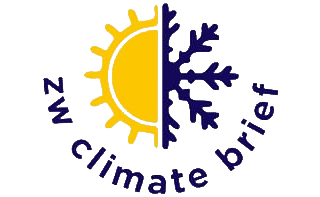Staff Writer
The United Nations Framework Convention of Climate Change – Consultative Group of Experts – is meeting in Victoria Falls to help countries understand the new Enhanced Transparency Framework and its reporting requirements.
Held under the theme, Unpacking the enhanced transparency framework and its modalities, procedures, and guidelines for the biennial transparency reports, the two-day conference brings together parties to the UNFCCC as well as parties to the Paris Agreement.
Minister of Environment and Climate, Sithembiso Nyoni, said Zimbabwe recognises the importance of transparency under the UNFCCC and Paris Agreement.
“Zimbabwe recognises that transparency arrangements under the UNFCCC and the Paris Agreement are meant to ensure that all Parties are contributing towards addressing causes of climate change, enhancing adaptation capacities and directing financial flows towards climate resilience and low carbon development,” she said.
“In light of this, the work of the Consultative Group of Experts (CGE) in assisting developing countries in improving their level of expertise in reporting in accordance with set guidelines becomes very important. In addition, the CGE provides our experts with the much-needed skills to ensure that we can review and critically analyse documents submitted to the UNFCCC by other Parties thereby providing information to hold each other to account.”
She added that the workshop will enhance the implementation of the modalities, procedures and guidelines of the Enhanced Transparency Framework.
“More specifically, it will focus on the status of preparation of Biennial Transparency Reports and the associated institutional arrangements; practical training in using the UNFCCC Common Tabular Formats; reporting on Nationally Determined Contributions as well as climate change mitigation policy analysis,” Nyoni said.
The Minister highlighted that Zimbabwe has been Party to the UNFCCC since 1994 and its Paris Agreement since 2017 and presided over the Second Conference of Parties, indicating its desire to address the climate change challenge as part of the international community.
“In recent years, scientists have stressed the need to limit global warming to 1.5°C by the end of this century. The Intergovernmental Panel on Climate Change indicates that crossing the 1.5°C threshold risks unleashing far more severe climate change impacts, including more frequent and severe droughts, heatwaves and flooding,” Nyoni said.
“The impacts of tropical cyclones are becoming more and more frequent, becoming more destructive due to increased intensity as seen in the aftermath of Tropical Cyclone Idai in 2019 in Zimbabwe and Mozambique. This year, Zimbabwe as well as most countries in the Southern African region, is being impacted by one of the worst droughts in recent years and is already diverting resources towards food and water security in order to minimise the social and economic impacts.”
Consultative Group of Experts member representing Africa Nesbert Samu said the continent is addressing climate change issues and trying to meet the 1,5 degrees Celsius emission.
“There are reporting obligations under the Convention as well as under the Paris Agreement, and as we speak, we are preparing to submit the biannual transparency report as provided for under Article 13 of the Paris Agreement,” he said.
“The whole idea is to take stock of the implementation process and progress that has been made in implementing nationally determined contributions by the parties which are essentially work plan that has been developed.”

